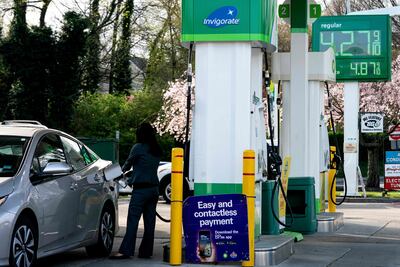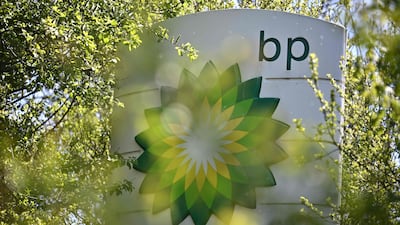Energy giant BP on Tuesday reported a $20.4 billion loss for the first quarter of the year after the hit it took from pulling out of Russia wiped out extra revenues from soaring fuel prices. The reported result includes adjusting items before tax of $30.8bn.
BP reported an underlying profit of $6.2bn, more than double the quarter in the year-earlier period, beating analyst expectations of $4.43bn.
Shares in the British company were up 1.5 per cent after it said its underlying profits were on the rise despite the one-off costs of ditching its 20 per cent stake in Russian oil producer Rosneft.
Under pressure to help consumers amid calls for a windfall tax on swelling fuel company revenues, BP also promised to invest up to £18bn ($22.5bn) by 2030 in upgrading Britain’s energy system.
It said it would spend $2.5bn buying back shares from investors before the end of the second quarter after its surplus cash flow rose to more than $4bn.
Chief executive Bernard Looney said the “tragic events in Ukraine” had overshadowed the first quarter of the year but that BP’s “strategy, financial frame and expectations for shareholder distributions” were unchanged.
“Our decision in February to exit our shareholding in Rosneft resulted in the material non-cash charges and headline loss we reported today,” he said.

It said charges linked to pulling out of Rosneft, in which it had previously had a 19.75 per cent holding and nominated two directors to the Russian company’s board, amounted to more than $25bn.
The withdrawal was announced three days after Russia invaded Ukraine in February, with BP executives saying the largely state-owned Rosneft was no longer aligned with the British company’s business. It came amid a wider corporate boycott of Russia amid several rounds of western sanctions.
Oil and gas prices were soaring since before the invasion and had lifted BP’s annual profits in 2021 to their highest in eight years. Rivals including Exxon Mobil, Chevron and TotalEnergies have seen a sharp rise in revenue.
Britain’s opposition Labour Party on Tuesday renewed its calls for a one-off tax to ease the pain for consumers during what it calls a cost of living crisis.
But cabinet minister Anne-Marie Trevelyan, speaking for the government on morning television, said BP needed its revenues to invest in green technology.
“If we strip away their profits, we will not be able to do what is the most important thing… to invest in those clean energies of the future which will also enable us to come away from our reliance on foreign energy,” she told BBC Breakfast.
BP said its investments would include more oil and gas exploration in the North Sea, as well as funding for offshore wind infrastructure and £1bn for electric vehicle charging over the next decade.
It plans to produce hydrogen fuel at two plants, one making so-called green hydrogen derived from renewable sources and the other producing blue hydrogen from natural gas.


